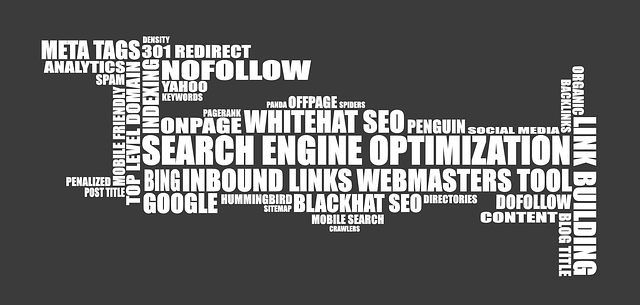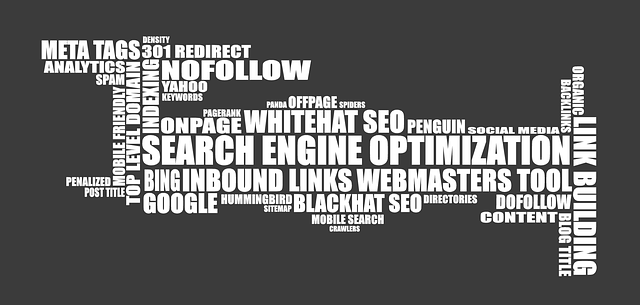Link building is a strategic SEO process (SEO) focused on acquiring high-quality backlinks from authoritative sites, boosting website authority and relevance in search engine results. It involves understanding target audiences, industry trends, and existing authorities while creating compelling content and pursuing collaboration opportunities. Effective link building improves search rankings, drives organic traffic, and strengthens online presence over time. Backlinks from reputable sources are crucial for SEO, indicating to search engines that your content is reliable and deserving of higher ranks.
In the dynamic landscape of search engine optimization (SEO), link building stands as a cornerstone for establishing your website’s authority. This article navigates the intricate art of building backlinks, exploring why they’re paramount for your site’s visibility and ranking. We’ll guide you through understanding link building, identifying high-quality opportunities, crafting compelling content, implementing ethical outreach strategies, tracking progress, and avoiding common pitfalls to master this essential SEO technique.
Understanding Link Building: The Cornerstone of SEO

Link building is a strategic process that involves acquiring backlinks from other websites, which point to your own. It’s considered the cornerstone of SEO (Search Engine Optimization) because it signals to search engines that your website is valuable and trustworthy. When high-quality sites link to yours, it boosts your site’s authority and relevance in the eyes of search algorithms. This, in turn, can lead to better rankings, increased organic traffic, and a stronger online presence.
Effective link building requires a deep understanding of your target audience, industry trends, and the websites that hold authority in your niche. It involves creating compelling content that naturally attracts links, as well as actively pursuing opportunities for collaboration, guest blogging, and partnership. By implementing these strategies, you can build a robust backlink profile that strengthens your website’s SEO performance over time.
Why Backlinks Matter for Your Website's Authority

Backlinks, or incoming links from other websites, are a cornerstone of search engine optimization (SEO). They signal to search engines that your website is a valuable resource, worthy of being referenced. When high-quality websites link to yours, it boosts your site’s authority and credibility in the eyes of search algorithms. This interconnection of websites creates a web of trust, indicating to Google and other search engines that your content is reliable and deserves higher rankings in search results.
Effective link building strategies involve securing backlinks from reputable sources relevant to your niche. These links not only drive traffic but also improve your website’s visibility and influence. Search engines consider the quality and quantity of backlinks when determining a site’s rank, making them a critical component of any successful SEO strategy.
Identifying Relevant and High-Quality Linking Opportunities

Identifying relevant and high-quality linking opportunities is a crucial step in effective link building strategies for SEO. It involves careful research to pinpoint websites and resources that align with your niche and possess strong domain authority. By focusing on reputable and relevant sources, you can secure backlinks that carry significant weight in search engine algorithms.
Engage with industry leaders, influential blogs, and established websites within your target market. These platforms are more likely to offer valuable backlink opportunities, either through guest blogging, collaborative content creation, or simple mention and attribution. Ensure the links obtained are contextual and come from diverse sources to enhance the overall authority of your website.
Creating Compelling Content That Attracts Links

Creating compelling content is a strategic move in the world of SEO and link building. When crafting content, consider what truly engages your audience and captures their interest. High-quality, unique, and valuable content naturally draws attention from other websites and influencers in your industry, encouraging them to link back to your source. This strategy is not just about attracting links; it’s about fostering a genuine connection with your readers, which can lead to organic sharing and linking opportunities.
Focus on providing in-depth insights, offering solutions to common problems, or presenting unique perspectives that spark conversations. By consistently producing such content, you increase the chances of being noticed by potential link partners. Remember, quality should always be prioritized over quantity; a few well-crafted pieces are more effective in building backlinks than numerous shallow articles.
Effective Outreach Strategies for Earning Quality Backlinks

Building backlinks is a crucial aspect of effective link building strategies, and it involves more than just reaching out to websites. For quality backlinks, focus on targeted outreach that aligns with your niche and audience. Identify influencers or industry leaders who can benefit from your content and approach them personally. Offer valuable resources, such as exclusive research, data, or tools, that solve their problems or enrich their content. By providing genuine value, you increase the likelihood of them linking back to your site naturally.
Additionally, participate in online communities, forums, and groups related to your industry. Share insightful comments, answer questions, and engage with other members regularly. Over time, establish yourself as a thought leader and reliable source, which may lead to organic backlinks from these platforms. Remember, quality backlinks are earned through genuine connections and valuable contributions, ensuring long-term benefits for your SEO efforts.
Analyzing and Tracking Your Link Building Progress

Analyzing your link building progress is a crucial step in understanding what strategies are working and where there’s room for improvement. Start by keeping a close eye on the quality of backlinks you’re acquiring. Not all links carry equal weight; those from reputable, relevant sources hold more value. Utilize SEO tools to monitor the number and type of backlinks over time. This data will reveal trends and patterns, allowing you to make informed decisions about future outreach efforts.
Regular tracking enables you to identify successful tactics, such as guest blogging or broken link building, and double down on them. Conversely, if certain methods aren’t yielding results, it’s an opportunity to reevaluate and explore alternative approaches. The key is consistent evaluation, ensuring your link building strategy remains dynamic and aligned with your SEO goals.
Ethical Link Building Practices: Avoiding Common Pitfalls

When engaging in link building, it’s crucial to adhere to ethical practices that focus on quality and relevance. One common pitfall to avoid is spamming, which involves indiscriminately creating links with no regard for their context or value. This tactic not only harms your reputation but also frustrates users and search engines alike. Instead, focus on building natural, organic links by creating valuable content that naturally attracts backlinks from reputable sources.
Another pitfall is buying or selling links, a practice frowned upon by major search engines. Such practices can lead to penalties and damage your website’s credibility. Always prioritize building links through legitimate means, such as reaching out to industry influencers for collaborations, guest blogging on relevant sites, or offering unique resources that naturally earn backlinks from other websites. Remember, the goal is to establish genuine connections within your industry, enhancing your site’s authority and relevance in the eyes of both users and search algorithms.
